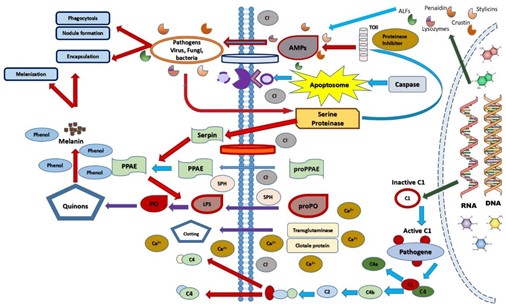
Innate immune system is the first line response against environmental changes in invertebrate. It protects the animal from environmental changes such as temperature change, PH and salinity as well as pathogens such as bacteria and viruses through different biochemical pathways. In fact, the innate immune system relies on different biochemical reactions which are protecting the animal under adverse environmental circumstances. Among all of the environmental factors, temperature is a dangerous abiotic factor which affects organisms on its ecological level through infiltrating it’s the molecular and cellular levels. Invertebrate could survive from a wide range of environmental effects and possesses innate immunity as its defense systems. This review paper aimed at presenting the main innate immune pathways that are activated against the most abiotic environmental changes. We reviewed fundamental aspects of invertebrates’ defense process by focusing on the important innate immune pathways including: Pattern recognition receptors (PRRs), Antimicrobial peptide (AMP), Pro-PO activating system, Melanization Pathway, Lectin Pathway, Apoptosis Pathway, Plasma clotting protein.
Total file downloads: 3